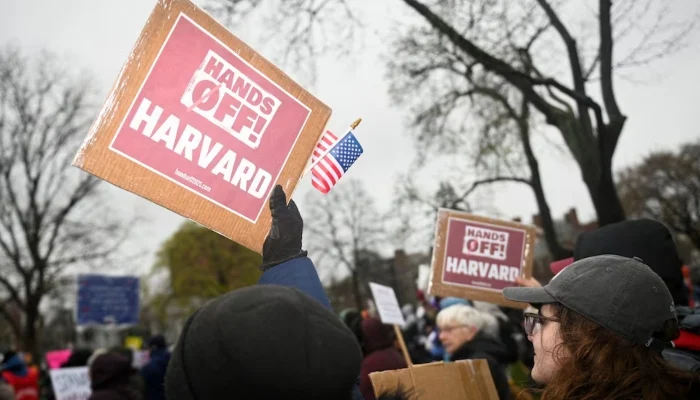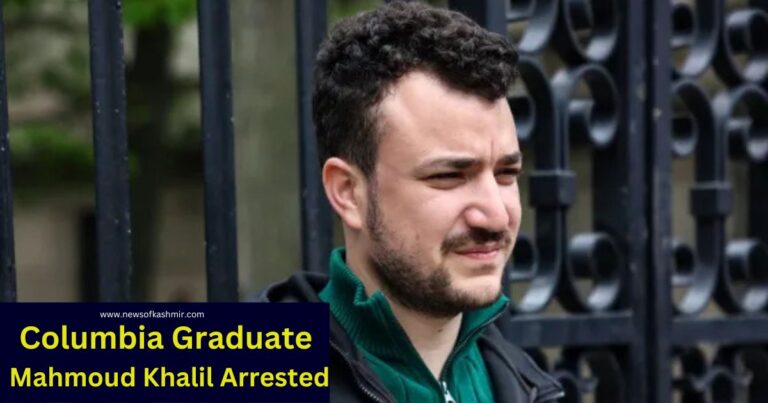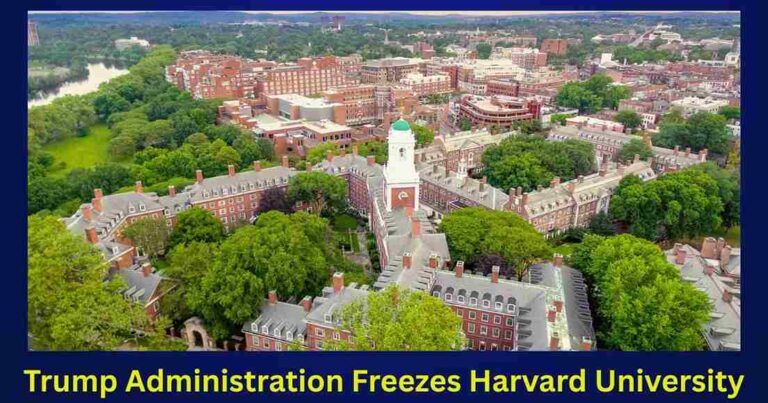Harvard Defies Trump Demands Amid $2.3 Billion Funding Freeze and Antisemitism Crackdown

Harvard University, one of the world’s most prestigious academic institutions, has found itself at the centre of a growing conflict with the Trump administration. On Monday, Harvard publicly rejected a series of demands from the federal government that the university described as an attack on its independence and core values. In response, the Trump administration announced an immediate freeze on $2.3 billion in federal funding to the school, escalating a high-stakes battle over free speech, academic freedom, and how universities respond to allegations of antisemitism.
To Join Us On WhatsApp Click Here
Rising Tensions and Allegations
The conflict stems from pro-Palestinian protests that have taken place on numerous U.S. college campuses over the past 18 months, including at Harvard. The Trump administration claims these demonstrations have given rise to widespread antisemitism and has launched a sweeping review of federal funding for major universities. Last month, officials began investigating nearly $9 billion in federal contracts and grants awarded to Harvard, citing what they say is a failure to address antisemitism effectively.
In a scathing letter, the Department of Education accused Harvard of fostering a “troubling entitlement mindset” and demanded sweeping changes to the way the university operates. These demands included auditing faculty and students for political bias, hiring and admitting solely on merit without regard to race or nationality, and reporting international students who violate conduct rules to immigration authorities.
Harvard’s Response
Harvard President Alan Garber strongly pushed back against the administration’s approach, stating that the federal demands would effectively place Harvard under government control and threaten its mission as a private academic institution. In a public letter, Garber wrote, “No government — regardless of which party is in power — should dictate what private universities can teach, whom they can admit and hire, and which areas of study and inquiry they can pursue.”
While Garber acknowledged the seriousness of addressing antisemitism, he made it clear that the university would not comply with requirements that compromise its constitutional rights or academic standards. “Freedom of thought and inquiry, along with the government’s longstanding commitment to respect and protect it, has enabled universities to contribute in vital ways to a free society,” he wrote.
Wider Impact on U.S. Universities
Harvard is not alone in facing scrutiny from the Trump administration. Columbia University, another Ivy League institution, has already seen $400 million in federal funding suspended and is reportedly being pressured into a consent decree that would legally bind it to follow government directives in combating antisemitism. Like Harvard, some Columbia professors have responded by suing the federal government.
The administration’s actions also include cancelling student visas and beginning deportation proceedings against foreign students involved in pro-Palestinian demonstrations. These measures have drawn sharp criticism from academics, civil liberties groups, and legal experts who warn that the government is overstepping its authority and endangering free speech on campus.
Legal Challenges and Financial Moves
To defend its position, a group of Harvard professors recently filed a lawsuit challenging the federal review of university funding. The lawsuit argues that the government’s actions violate both the First Amendment and established norms of academic freedom.
Meanwhile, to prepare for the possibility of a prolonged funding shortfall, Harvard is seeking to borrow $750 million from Wall Street. The move reflects growing concern over the long-term financial impact of losing federal support, which plays a key role in funding research, scholarships, and academic programmes.
A Deepening National Debate
At the heart of this confrontation is a broader debate over the role of higher education in American society, particularly the balance between government oversight and institutional autonomy. The Trump administration argues it is safeguarding taxpayer money and fighting discrimination, while universities insist that academic freedom must be protected from political interference.
As the situation unfolds, the outcome could shape the future of higher education across the country. For now, Harvard stands firm in its resistance, vowing to defend its values and resist what it sees as an unprecedented intrusion by the federal government.
You Might Also Like:
Cyber Police Kashmir Cracks Down on 50 Mule Accounts Linked to Online Fraud
J&K Students Association Thanks Dr. S. Jaishankar for Rescuing Trafficked Kashmiri Youth
Omar Abdullah Slams Waqf Amendment Act 2025, Calls It Discriminatory and Unconstitutional





